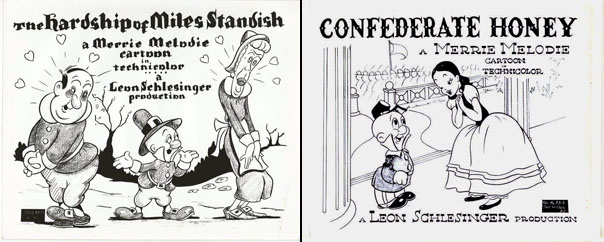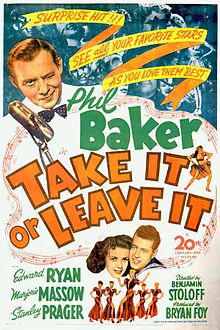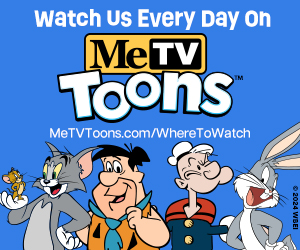If there’s one thing that marks the humor of a Warner Bros. cartoon it’s that so much of it is topical.

Even in a short that was supposed to be set “in period”–such as The Hardship of Miles Standish or Confederate Honey (both 1940) – you’ll find gags that would have elicited knowing smile from audiences–juvenile and adult–of the day.
Catch-phrases from radio, commercial jingles and slogans, caricatures of particular motion picture stars–all were grist for the Warners’ mill. So why should the newly-arisen format of the quiz show be any different?
Ostensibly, Rookie Revue (1941, Freleng) is a satire of life at the Army camps that had sprung up all over the place now that Our Boys were “gone with the draft”. All of the usual tropes of military life get the once-over here–including the count-off of soldiers in line. And here’s where things take a detour into Game Show Land.
In the line is one soldier who cannot remember that “four” comes after “three”. And things go immediately into a parody of “Take It Or Leave It’, one of the popular quiz shows of the day.
“Take It Or Leave It” is the antediluvian antecedent of the more recent “Who Wants To Be A Millionaire”–and a direct ancestor of the “$64,000 Question”, which was so big at a later date.
Contestants were brought up from the studio audience, and were asked a series of questions, each of which was worth twice the value of the preceding question.

“Take It Or Leave It” was so popular, Fox released a feature based on the quiz show in 1944.
That doesn’t sound like much in the year 2017. But, in 1941, sixty-four dollars was a good, middle-class week’s salary.
Indeed, the phrase “The $64 Question” became everyday slang for a real tough problem.
One other catch-phrase from that show found its way into Warners toons. There were no “safety nets” on “Take It Or Leave It”. If you answered a question wrong, you lost the money you had earned up to that point, and it was back to the audience for you.
And you can bet that when contestant–male or female–was deciding whether to go for the next question, or stop and keep the money already earned, would hear a chant fro one or more members of the Studio Audience form whence he or she came.
“You’ll be SORR-REEEE!”
Chanted to a particular tune–something along the lines of the notes used for the NBC Chimes (ironic in that “Take It Or Leave It” was mostly a CBS show), it became one of the most identifiable things on the show–and was, thus, fair game for Warners’ writers.
Not only does this show up in Rookie Revue, but Warners would find it useful in other cartoons. So, as an example, in Daffy’s Southern Exposure (1942, McCabe), when Daffy announces that he’s staying up North to check out this ‘Winter business” (showing a poster for a beauty-pageant involving a “snow queen”), he is greeted by the remaining ducks, who interrupt their headlong flight to warmer climes to let Daffy know what they think of that plan.
“You’ll be SORR-REEEE!”
“Take it Or Leave It” lasted into the 1950’s on radio, with a succession of comic hosts,including, at various times, Phil Baker, Garry Moore and Eddie Cantor.
In its last season on the air it was known as “The $64 Question”.
A few years later, that figure would be multiplied a thousandfold, producing one of the iconic game shows of the 1950’s–and leading to a scandal that wold rock all of television.
But that’s another story, for another column.


 James Parten has overcome a congenital visual disability to be acknowledged as an expert on the early history of recorded sound. He has a Broadcasting Certificate (Radio Option) from Los Angeles Valley College, class of 1999. He has also been a fan of animated cartoons since childhood.
James Parten has overcome a congenital visual disability to be acknowledged as an expert on the early history of recorded sound. He has a Broadcasting Certificate (Radio Option) from Los Angeles Valley College, class of 1999. He has also been a fan of animated cartoons since childhood.












































In the later “Riff Raffy Daffy,” (1948, Davis) after Daffy has been evicted multiple times by Officer Porky Pig from “sleeping rough” conditions, he spots a swanky department store layout, prompting him to note that that refuge is the answer to his “$64 Question.” This, I think, is an exemplar of your comment about $64 standing in for “tough questions” (in this case, where is Daffy going to sleep?) (See: http://www.dailymotion.com/video/x2skox_riff-raffy-daffy_shortfilms at 1.50 ff.)
Of course, the reverse could be true, and the “$1 question” could be used sarcastically, in the “Captain Obvious” sense. See, for example, the early McKimson cartoon “One Meat Brawl” (1947), where a prototype of Barnyard Dawg discovers Grover Groundhog. (See: http://www.dailymotion.com/video/x3vwur_one-meat-brawl_shortfilms at 3.15 ff)
Not to mention “What a revolting development this is!”, as immortalised by The Life of Riley.
I vaguely recall a cartoon where Daffy is being chased, and he stops dead in his tracks and shouts “Correct! Absolutely correct!” I’m sure that is from a quiz show, perhaps from Kay Kyser’s show?
I recall the phrase “You’ll be SURR-REEE!” being used in another Warner cartoon, but I’ll leave you to talk about that one in one of your future articles, James.
i am, truly, adoring this Thread. Explains so much. Luv it! TY!
Bugs says Red Hot Ryder wins the $64 question at the end of “Buckaroo Bugs”. “You’ll be sorr-rree” also turns up, appropriately enough, in “The Ducksters” and Bugs says it in “A-Lad-In His Lamp”. A non-WB use of “You’ll be sorr-rree” is the Famous Popeye short, “Double Cross-Country Race”.
That phrase wasn’t used only in Warner Bros. cartoons. Remember that ‘Popeye’ short (from Paramount) in which the sailor man gives up his last can of spinach – before ‘Bluto’ was about to smash him over the head with a large piece of furniture (or something just as big)? Thrown out the window, the can lands on the back of a moving pick-up truck, and (anthropomorphically) calls out “You’ll be SORR-REEEE!!” I forget the title of that cartoon, but that scene still runs around in my mind!
That would be “Friend or Phony” from circa 1952.
Bluto was about to hit Popeye with his (Bluto’s) bed. Famous’ cartoons don’t have the sense of fun that’s in Warners’. Thus, the use of “You’ll Be Sorry” in that Popeye has a heavy, grim overtone . Winston Sharples’ dark background music underscores(no bad pun intended) this grimness.
And speaking of The $64 Question, Fred Allen once did a British-flavoured spinoff imagining the (highly unlikely at the time) prospect of commercial radio between Land’s End and John O’Groats he called “The 64-Shilling Question”.
(Remember, this was pre-decimalisation, you know, back when 12d. = 1/- and 20/- = £1. Hence, the 32/- prize was equal to £1.12.0 [one pound, twelve shillings] and the top prize of 64/- worked out alternately to £3.4.0, or one shilling above three guineas; the “guinea,” originally created for foreign trade, was 21/- or, conversely, £1.1.0. Britain would not decimalise until 14 February 1971.)
On British television, there was actually a 64,000 Question series on ITV (the commercial network). It was started not long after the American “$64000 Question” premiered.
AT first, the top prize was, at first, 64,000 sixpences (sixteen hundred quid). Later, the top prize was raised to 64,000 shillings (thirty-two hundred pounds–equivalent to just under $9000 at the exchange rates of the time),
And to close a loop, after a fashion: Phil Baker and “Take it Or Leave It” followed Fred Allen on CBS at one point during the 1940s. Allen was notorious for going over time (owing in no small measure to his ad-libs), prompting Baker at one point (the February 28, 1943 show) to show up on Allen’s show to “complain.”
See: http://retro-otr.com/2016/02/fred-allen-take-it-or-leave-it-with-phil-baker-430228/ which includes a copy of the broadcast.
to Jed: that film was “How Green Is My Spinach!”
No, that short was “Friend or Phony”.
One more WB “You’ll be sorr-reee” I just remembered: Tweety says it to Granny in “Tweety’s S.O.S” — warning her not to hit the explosives-filled Sylvester with the umbrella.
The “I’m waiting for the $64 question” gag was also used in “Robinson Crusoe Jr.”
Chuckles Gardner reminds me that, at one point in :”Hobo Bobo”, the prospect of the Circus is described as “. . . the answer to the Sixty-Four Dollar Question”.
“You Bet Your Life” was oddly parodied in a late Bugs Bunny short set in a TV studio. It became “You Beat Your Wife” and Bugs as Groucho asked the easily flustered Elmer, “Do you still beat your wife?”
I have vague memories of a Mighty Mouse cartoon framed as a radio show. Not sure it was a game parody, but the closing gag was Mighty Mouse standing atop an insane pile of prizes.
“Wideo Wabbit” was the Bugs cartoon, but recent showings altered it to remove mentions of wife-beating.
Then there was the 1950 Porky/Daffy short by Jones, “The Ducksters”, an excellent “Truth or Consquences”(Ralph Edwards,pre-Bob Barker).And also another “Take it or Leave it” spoof.
This thread should be renamed “POP CULTURE NAME DROPS” as this particular post goes beyond mere “needle drops”, but I’m lovin’ every minute of this…and, yes, Warner Brothers cartoons were riddled with so many pop culture references, whether links to their own movies or just catch phrases from the golden days of radio…which is why we really *NEED* a spot on the cable dial where there can be a video broadcast version of CARTOON RESEARCH!
R.J. Has the right Popeye cartoon. “How Green Was My Spinach” had Bluto destroying the world’s spinach inventory, leaving Popeye powerless until a live action child watching the cartoon in a theater tossed a can of spinach into the scene.